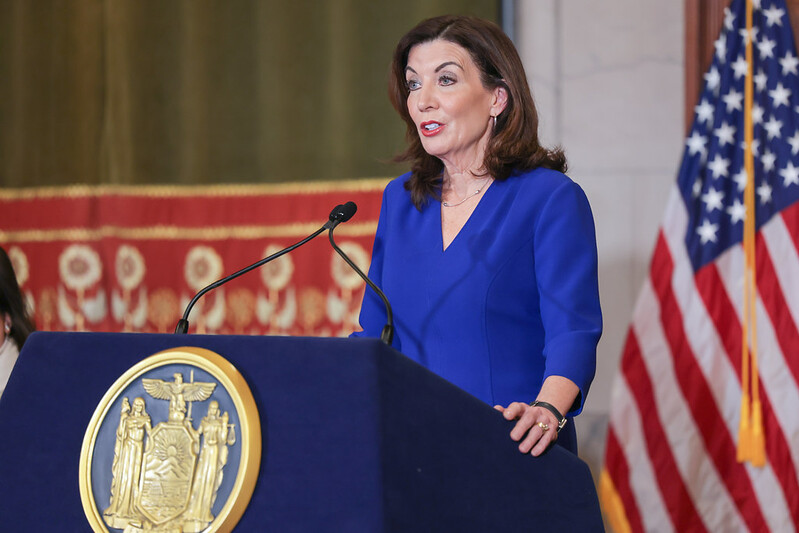The state’s new budget includes some good news for South Bronx residents — more money for rental assistance, a boost in the minimum wage, and one free bus route in the borough.
One major win for the South Bronx is $391 million in funds for the Emergency Rental Assistance Program (ERAP) to cover rent owed by public housing residents who fell behind during the pandemic.
When the program launched in 2021 and over 400,000 applications poured in, public housing residents were deliberately excluded from receiving funds.
While no new applications can be submitted, the $391 million will fully cover everyone who already applied and was granted approval, in NYCHA as well as public housing across the state.
Another big win in the budget, passed last week, is an increase in the minimum wage, from $15 to $16 in 2024 and $.50 increases in 2025 and 2026. Then, beginning in 2027, the state’s minimum wage will be indexed to inflation.
Tied to the budget was legislation authorizing a crackdown on illegal cannabis shops. The state Office of Cannabis Management and the Department of Taxation and Finance were given increased powers to seize products, seek injunctions to close unlicensed stores, and impose civil and tax penalties of up to $20,000 per day.
Burgos anticipates many illegal shops will end up closing, creating opportunity for legal businesses instead: “[Cannabis] stores have to be regulated, just like alcohol is and every other controlled substance is.”
MTA data shows that in the Bronx, more than half of bus riders are already evading the fare for various reasons, from lack of income to perceptions of poor service.
The free bus pilot was part of a deal granting $1.1 billion in funding for the MTA, saving the agency (at least temporarily) from fiscal disaster brought on by the pandemic.
With other cities like Los Angeles experimenting with no-fare buses, Burgos hopes the new funding will allow the MTA to provide “faster, more reliable, and more frequent” transportation.
While the new budget included some boosts for working-class New Yorkers, Burgos pointed to one major defeat: a comprehensive housing plan, which he said he was “disappointed to see not included.”
Hochul’s proposal to mandate construction of 800,000 new homes across the state was rejected by suburban lawmakers who fought to maintain local control.

